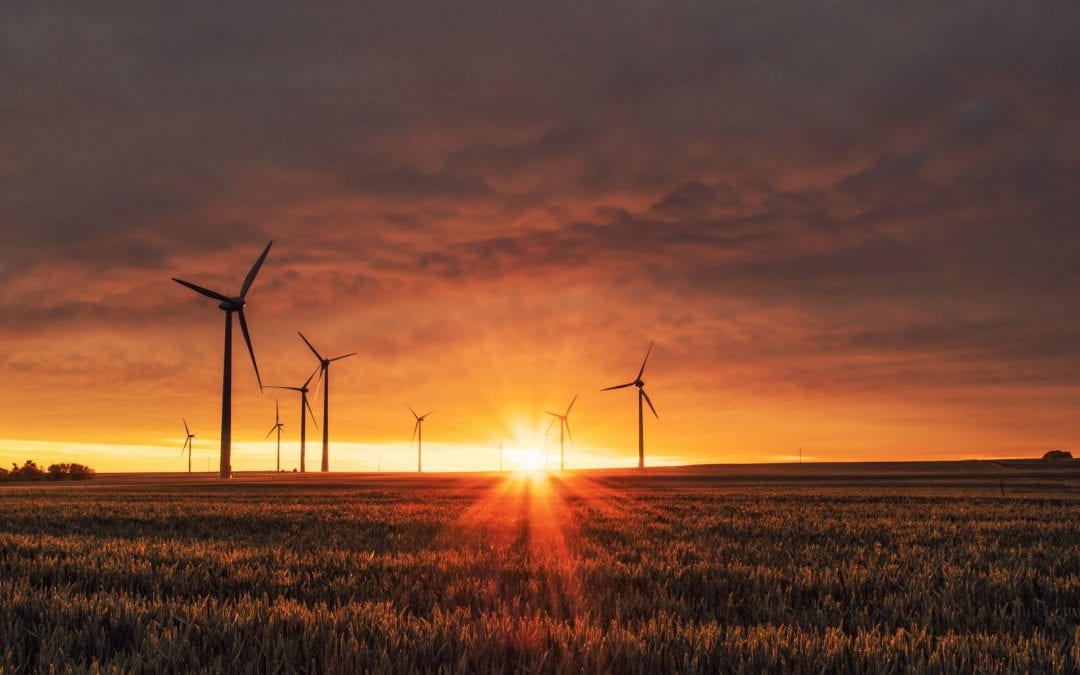By Ralph Cooney
People and governments have the chance to learn from Covid-19, and build a new sustainable climate future with a watchful eye on our Sustainable Development Goals, writes Professor Ralph Cooney.
At the time of writing, Covid-19 had already caused the deaths of about a quarter of a million human beings. This is a disaster for most communities around the world. The impact on economies, businesses and jobs, and hence the well-being of families, is immense. For poorer countries, for those at war and for refugees, the scale of this disaster is certain to be far greater. Globally, about 700 million people live in poverty and about half of them are children – the impact of the virus on these most vulnerable populations will certainly be a lingering dark legacy for humanity. Yet within about a year, a vaccine will have been developed against the virus and global immunity may eventually become a reality.
What then has the global community learned from this tortuous experience? Humanity has learned that the heavy machinery of our political, economic and social systems can be paused long enough to fundamentally reconsider and adjust our climate priorities. Perhaps most fundamentally, the anti-science thinking promoted by populist political leaders in recent years has been largely replaced by science-informed strategies during the response to Covid-19.
Human society has learned that humans can contribute independently, positively and idealistically as individuals, in small intimate groups, as families, as small and large organisations, as communities, as cities and as countries. International cooperation and support have been evident. It has learned that a pause in industrial development even for a few months has had clear benefits for the planet: reduced greenhouse gases, and lower levels of toxic gases (such as nitrogen oxides) from combustion of fossil fuels and reduced levels of carcinogenic carbon particulates.
The virus has led to a massive reduction in travel by vehicle, plane and ship. This has given us a privileged glimpse of a very different global future where climate change is not such a threat to the health of the planet, to the future of our species and to the many other species stripped of habitat and threatened with extinction.
Prior to Covid-19, the community of nations had reached a consensus that climate change was real (majorities in 40 countries, Pew Global Poll, 2016). However, the ambiguity of empirical evidence meant that climate change as an existential challenge was often displaced in public priorities and government policy by other serious environmental concerns that were more apparent and explicit (such as plastics in the oceans).
The stepwise evolution of climate change has now clearly influenced public opinion: exceptional temperatures leading to droughts and then to mega-fires, intensive storms and flooding, are clearly shaping international opinion. So what are the prospects that the trauma and development hiatus of Covid-19, coupled with the learnings from this microbiological disaster, might trigger an enhanced global political-economic response to climate change? It is too early to say for certain, but this brief 2020 glimpse of a different future must surely enhance the prospects of converging towards a more sustainable climate.
What are the practical steps underway that support the move towards zero-carbon economies? The single most important step is to replace fossil fuel technologies, especially coal, with renewable power sources. This replacement is very advanced in automotive and aeronautical sectors with a system-wide shift from internal combustion engines to electric cars (EVs), trucks and buses expected to be largely complete by 2030 and to electric airliners by 2040.
The Scandinavian countries lead the world in this electric transport revolution, with Norway already having 50 percent of its car fleet as EVs. It plans to have all its domestic flights using electric airliners within 20 years. The UK government recently signalled a ban on internal combustion vehicles by 2035. The new CEO of BP has set a zero-carbon target by 2050.
The majority of oil and gas companies are now investing massively in renewable energy technologies. Statoil (Norway) has developed the world’s first large-scale wind energy farm that floats on the ocean. Following the success of class-action litigation decades ago against major US companies producing CFC agents, which caused the polar atmospheric ozone hole, similar litigation is now an increasingly effective mechanism against fossil fuel companies. The High Court in the Netherlands has instructed the government to strengthen its zero-carbon targets, which demonstrates that governments are not immune to climate litigation.
Science and universities have played a profound ongoing role in helping the world avoid the worst effects of Covid-19. What role can universities now play in helping the world move towards zero-carbon economies and all 17 of the UN’s SDGs to ensure human survival and well-being? Researchers and teachers across all faculties and disciplines now need to work with governments and the private sector in practical interdisciplinary partnerships to create this safer, greater future.
This article was originally published in the May 2020 edition of UniNews and was republished with permission.
Emeritus Professor Ralph Cooney recently retired from the University of Auckland School of Chemical Sciences after 34 years.
Disclaimer: The ideas expressed in this article reflect the author’s views and not necessarily the views of The Big Q.
You might also like:
Climate change: Is a careful revolution possible?
Coronavirus lockdown: Is a low-carbon future possible?

